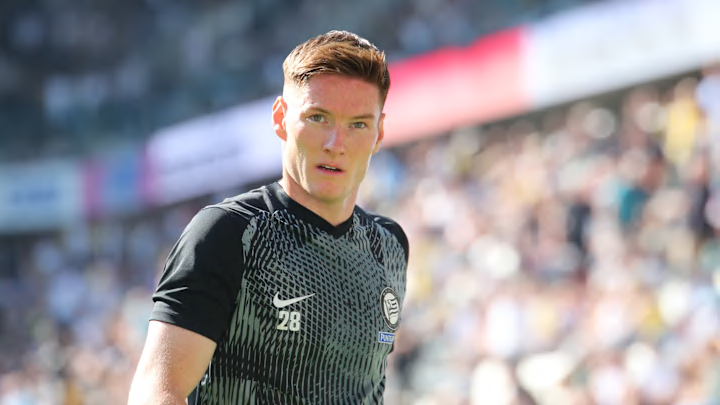When push comes to shove, D.C. United is scrambling in the transfer market, but are these moves truly the answer for a team that’s seemingly crumbling from within? Looking at D.C. United's latest additions, it's hard not to wonder: will these new faces turn the tide, or are they just temporary solutions to much bigger problems?
Take Boris Enow, a defensive midfielder from Maccabi Netanya. He's young, promising, and built for the physical demands of midfield play. But is he the miracle D.C. United desperately needs? Honestly, that sounds a bit too optimistic. Reality tells a different story. The fact that Enow might break into the starting lineup, especially if Matti Peltola shifts to the backline, says more about the fragility of the squad than the skill of the player. When a supposed depth signing suddenly becomes a contender for a starting role, it’s a clear red flag that something’s gone terribly wrong.
Follow MLS Multiplex on X (Twitter).
Now, don't get me wrong. Enow’s arrival could be seen as a genuine attempt to stabilize the midfield, but let's not kid ourselves—he's not the guy who's going to transform this team. Enow is one of those players who slips in quietly through the back door, brought in to put out short-term fires. He might hold things together for a while, but he’s not the backbone this squad desperately needs.
Moving on to the other signings: David Schnegg from Sturm Graz and Dom Badji on a free transfer. Sure, they’re decent players, but what are we really expecting from them? Once again, it feels like D.C. United is playing the "kick-the-can-down-the-road" game, where the idea is to delay dealing with the core issues until it’s too late. The truth is, these guys were brought in more to pad the roster than to revolutionize the style of play or make a major impact. What D.C. United needed were targeted reinforcements, but instead, they added depth in areas that probably didn’t need it as much.
And then there's the retirement of Steve Birnbaum, one of the defensive stalwarts of this team. Birnbaum wasn’t the flashy goal-scorer or the guy racking up assists, but he did what was necessary: he commanded respect at the back and kept the defense organized. His departure leaves a gaping hole, and let’s be honest, none of the recent signings are going to fill that void.
Looking closely, it’s obvious that D.C. United’s front office is trying to patch up a structure that’s already riddled with cracks. And the million-dollar question remains: how long will these patches hold before everything falls apart for good? Instead of making hasty signings with no clear plan, maybe D.C. United should focus on developing the talent they already have, fixing the tactical errors that have plagued them, and giving these new players time to naturally integrate into the squad.
Expecting quick and makeshift solutions to fix deep-rooted structural issues is wishful thinking at best. Unfortunately, D.C. United seems to be falling into this trap. Sure, Boris Enow might use his physicality and defensive skills to stop the bleeding in midfield. But soccer is a team sport—he can’t do it all on his own. Without a solid defense, a creative attack, and a front office with a strategic vision, D.C. United is staring down the barrel of another frustrating season.
